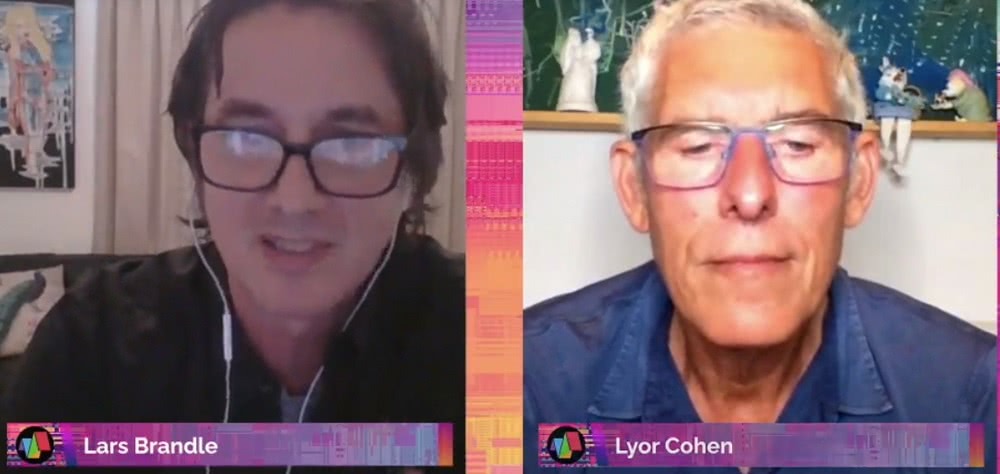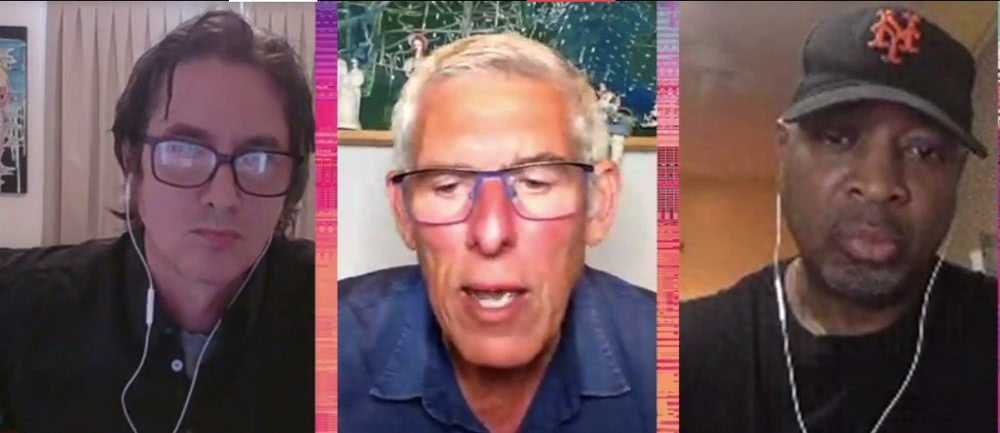YouTube’s Lyor Cohen talks Lime Cordiale, expansion and the future of hip-hop

The pandemic has been a horror show for every industry. That is, except for those businesses selling face masks, hand sanitiser, and streaming media.
With millions around the globe stuck inside and glued to their devices, digital entertainment platforms have benefited. Netflix added 26 million new, paid subscribers in the first two quarters of 2020 alone. That’s almost the total number of incoming subscribers reported for the full year 2019.
Streaming music services are firing, too.
The U.S. recorded-music business expanded by 5.6% to $5.7 billion, according to trade figures reported by the RIAA, though the rate of growth is well down on the double-digits seen in recent years.
YouTube and Google aren’t just thriving in these strange times. The tech giants are providing tools for the thousands of artists caught up in the big freeze.
That’s the word from Lyor Cohen, the Global Head of Music at YouTube and Google, where he oversees domestic and international music partnerships in addition to artist and label relations.
The U.S. power player was there at the dawn of hip-hop, helping to usher in the genre through Rush and Def Jam.
He’s run indies, majors (Island Def Jam, Warner Music), he’s launched startups (300 Entertainment). And he caught up recently with TIO’s Lars Brandle for round two of their All That Matters interview, the follow-up to their September 2017 on-stage Q&A in Singapore.
This time, it was all-digital. Cohen was joined by Chuck D, the legendary frontman of Public Enemy, whose incendiary new album What You Gonna Do When The Grid Goes Down.
Check out some highlights from the interview below.

Lars Brandle and Lyor Cohen chat at 2020 All That Matters
On expansion
Last year at this conference, Def Jam announced their launch of Def Jam in Asia. In ’88-89 we opened up Def Jam in Japan and Germany, so it’s nice to see they’ve got people on the ground in Asia looking after the artists.
So, we’ve really witnessed terrific growth in our business. One of the things that we are most mindful of and most focused on is the fact that artists are struggling to be able to engage with their fans in the live way.
Live is the bread and butter of an artist’s career and the pandemic has put a severe kink in live performance. So we immediately tried to make our live product more intuitive better to understand easier to be discovered and, of course, quality of sound.
We feel super positive about the efforts that we’ve made around live. We also started seeing something that was very APAC-centric that is the use of paid digital goods, so we created the Super Stickers and Super Chat where the fans could actually be engaged with a performance by pinning some of their stickers or chats and it’s been really fun to watch.
It’s a new product. It’s not new to Asia. They pay for digital goods. Certainly it is something that we feel very passionate about and we hope to continue iterating and making both the live experience and paid digital goods, only for the reason to help artists engage with their fans.
On supporting emerging artists
We’ve tried to support certain artists as they’re releasing their records. We have packages that we’re supportive of new artists and their coming to the marketplace.
In Australia, Lime Cordiale has been a real honour for us to have worked with. Incredible artists, and they’ve had real success and it’s a tribute to the people that we have in the region.
These are packages that are there to support new artists. We’re just trying to make sure that everybody knows that YouTube is there and we are here to support the creative community.
At the end of the day, there’s nothing without the creativity of the creative community. The imagination that has happened throughout the platform (during the pandemic) has been awesome to watch…to watch Bocelli perform live at the Duomo on Easter Sunday, I couldn’t believe it. It was just a remarkable moment for us.

Lars Brandle, Lyor Cohen and Chuck D chat at 2020 All That Matters
The future
I never was a weather man. I never tried to predict the future.
The future is going to be decided by some kid in a garage with supportive parents.
I don’t know what the machine is going to be this time.
I almost tanked a company…I invested all this money in Def Jam companies all around the world and spent a shit-ton. I had the right idea, it was just a little early.
One of the things that I was early about was simply because all the rappers overseas felt that they were appropriating rap music and so they didn’t want to make it their own.
They just simply mimicked American rappers.
It was only ‘till some kid said, “fuck that, I have something to say,” and they said it in their own way. And they were liberated in their expression. And that’s when the artform got a passport.
https://twitter.com/FortuneZnews/status/1305674007501369345
Is there a hip-hop bust after the boom?
Strap your seatbelts on because even the busts yield beautiful things.
As long as you’re not a day trader and you’re only in it for love of what we do, you’re going to enjoy some remarkable things.
YouTube’s relationship with labels
I think the relationships are improving.
I work very, very hard with our team throughout the world to let the labels know that we actually care about the art, the artform, care about their artists. We want to hear music, we want to be as helpful as possible, we want to build products that the industry will find valuable.
I’m asking for there to be collaboration between incredibly talented engineers that build these products to meet and get to know some of the most talented music people. And putting them together.
This article originally appeared on The Industry Observer, which is now part of The Music Network.






























